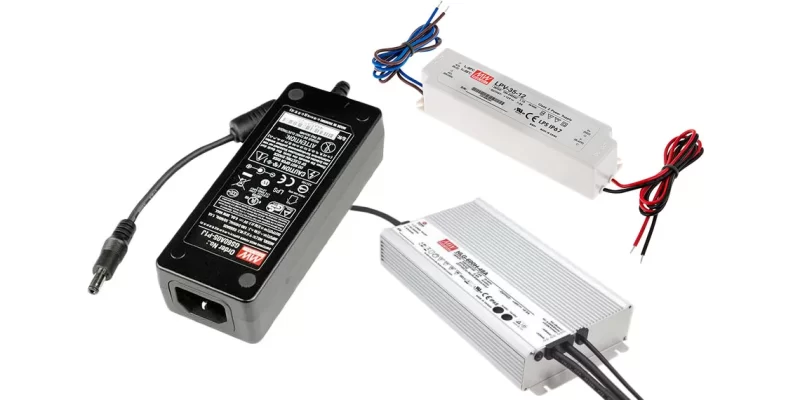In the fast-evolving world of lighting solutions, LED technology continues to lead the way especially when it comes to strip lights and modules. Whether it’s for architectural accents, commercial signage, or industrial displays, choosing the right manufacturer is more than a procurement decision; it’s a strategic investment.
Let’s explore what makes a reliable LED strip lights manufacturer or LED module manufacturer, and how to evaluate them based on real-world parameters.
Understanding LED Strip Lights Manufacturers
LED strip lights are flexible circuit boards lined with LED chips, used in everything from retail displays to home interiors. The two main types you’ll often come across are SMD (Surface Mounted Diode) and COB (Chip On Board). Each has distinct characteristics in terms of brightness, density, and energy efficiency.
A solid LED strip lights manufacturer doesn’t just supply rolls of light they offer technical innovation, customization, and reliability across projects of all sizes.
What to Look for in an LED Strip Lights Manufacturer
Not all LED strip lights are made equal. When assessing manufacturers, consider:
- Certifications & Standards: Compliance with international safety and quality standards like CE, RoHS, and ISO isn’t optional, it’s foundational. These certifications reflect responsible sourcing and rigorous testing.
- Product Range: A good manufacturer offers a diversity of 12V, 24V, waterproof options (IP65/IP68), and choices in color temperature (from warm to cool white and RGB variations).
- Customization Options: The ability to adjust LED density (e.g., 60, 120, or 240 LEDs per meter), CRI rating, or PCB width is crucial for project-specific requirements.
- Production Capacity & Lead Time: Reliable manufacturers keep their promises. That means short sampling cycles (around 7 days), stable lead times, and consistency in output.
DekingLED, for instance, checks several of these boxes offering flexible design configurations and a strong focus on quality control, though every buyer should still validate against their specific needs.
A Closer Look at LED Module Manufacturers
LED modules are compact, ready-to-install light units, widely used in signs, channel letters, and retail displays. These units combine LEDs with lenses, wiring, and waterproofing to deliver focused, durable lighting for small or irregular surfaces.
Choosing the right LED module manufacturer depends on the same principles but with a focus on application-specific performance.
Key Parameters for LED Modules
If you’re sourcing LED modules, look at:
- Voltage & Brightness: Most operate at 12V or 24V, but ensure the modules meet brightness targets (usually in lumens per module or per watt).
- Waterproof Ratings: Modules for outdoor signage should have high IP ratings (IP65 or above) to resist dust and moisture.
- Mounting Versatility: Adhesive backs, screw holes, and flexible cabling make installation easier, especially on curved or uneven surfaces.
- Thermal Management: Heat dispersion impacts both lifespan and performance. Quality modules use well-designed housings or aluminum bases for stability.
When reviewing a module-focused supplier like DekingLED, these technical details are clearly laid out, giving you an idea of product intent and limitations.
Industry Trends & Innovations
The LED landscape isn’t static. Here are some current trends worth paying attention to:
- Smart Features: Modules and strips now often support app or voice-based control, offering dimming, color shifts, and programmable sequences.
- Eco Efficiency: High-lumen output with lower wattage such as 150 lm/W or higher is fast becoming the benchmark for energy-conscious buyers.
- IP Improvements: Advances in waterproofing have made LED strips and modules more versatile than ever usable even in harsh outdoor conditions.
- Green Materials: Some manufacturers are adopting lead-free soldering, recyclable packaging, and low-emission production practices.
These improvements signal a shift from merely functional lighting to sustainable and intelligent design.
LED Strips vs LED Modules: A Practical Comparison
| Criteria | LED Strip Lights | LED Modules |
| Typical Use | Interiors, cove lighting, decor | Signage, channel letters |
| Flexibility | High (can bend/curve easily) | Moderate (modular but rigid) |
| Brightness Distribution | Uniform over length | Focused, directional |
| Waterproof Options | Yes (IP65/IP68 available) | Yes (commonly IP68) |
| Custom Lengths | Cuttable every few cm | Fixed modules, linked via wires |
Understanding these distinctions helps when you’re comparing suppliers based on the project at hand.
Supplier Evaluation Checklist
Here’s a quick checklist to help you assess any LED manufacturer:
- ✅ CE, RoHS, ISO, and EMC Certifications
- ✅ Ability to customize specs
- ✅ Low minimum order quantities
- ✅ Fast prototyping and sample timelines
- ✅ Responsive technical support
- ✅ Transparent warranty and return policies
- ✅ Global shipping and documentation readiness
Using this checklist can save both time and money in the long run especially on bulk orders or time-sensitive installations.
Example Snapshot: DekingLED
While not promotional, it’s worth noting how DekingLED presents itself. With over 15 years in the lighting industry, they offer an extensive catalog covering both strip lights and LED modules. Their offerings range from COB and SMD strips to waterproof, lens-equipped LED modules all backed by international certifications.
Their emphasis on OEM/ODM solutions and structured quality control reflects what you should expect from any professional-grade LED supplier.
Final Thoughts
The right lighting partner isn’t just a vendor; they’re part of your project’s success. Whether you’re looking at a led strip lights manufacturer or evaluating an led module manufacturer, focus on transparency, customization, and quality assurance.
In a crowded market, those qualities are what truly light the way forward.








Comments